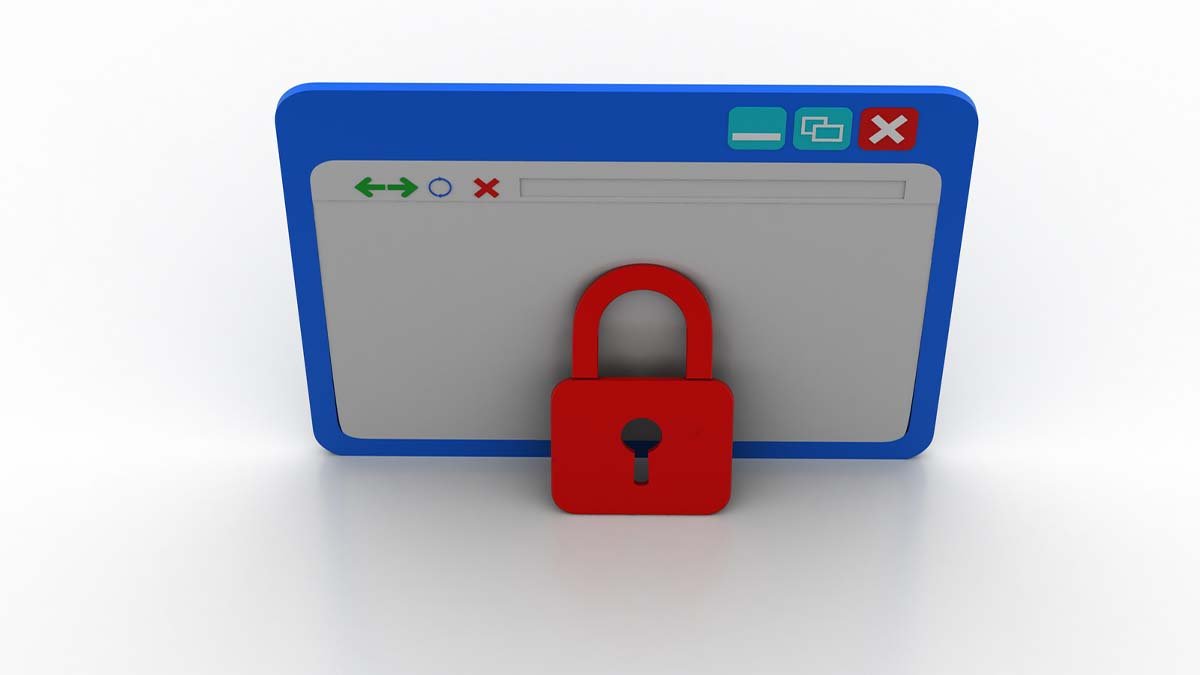The internet browser is the most valuable program on your computer. It connects you with the world wide web and allows you to browse through millions of websites. But the high security of Windows, Linux, and macOS operating systems has forced cybercriminals to hack into devices primarily through the browser as well.
Therefore, you must take precautions. Even the best browsers come with security issues. The following steps will improve your security whether you use Google Chrome, Mozilla Firefox, or any other browsing tool.
1. Install the Latest Updates
The internet is ever-evolving, and internet browsers are trying to keep up with the pace.
Developers launch new updates frequently, which include new features, bug fixes, and security improvements. The more recent your browser version is, the latest security patch you will receive.
There’s no doubt some new features come with bugs and functionality issues. But that’s way better than letting hackers steal and exploit your data. Older browser versions have security issues that cybercriminals use to access sensitive information.
2. Revise Your Privacy & Security Settings
The default browser privacy and security settings are far from perfect when trying to avoid cybercriminals and viruses. You just get the average default security at first. However, there are a few things you can edit in the settings to improve your safety.
We’ll use Google Chrome as an example (the steps are almost identical for all browsers). Open settings and click on the “Privacy and Security” page. Select “Enhanced protection”, which will filter downloads and extensions. It will keep you away from known harmful websites and potentially dangerous ones.
It’s advisable to scroll down a little and enable “Always use secure connections”. You will only view websites that offer HTTPS encryption when you enable that setting. Unfortunately, you won’t be able to open HTTP websites, but the price justifies the security.
3. Install a VPN
Browsing with a VPN for Chrome or any other browser is one of the most common
recommendations, yet most people neglect them. Numerous benefits come with VPNs:
- Anonymous Browsing
- Gain Access to Geo-Locked Websites
- Encrypted Connection for Remote Work
- Encryption for Public Wi-Fi Connections
Maybe you’re not looking for anonymity when casually browsing the web. Perhaps you’re not even one of the people that want to open websites unavailable in your country.
However, encryption for remote work and public Wi-Fi connections is crucial. There are many public Wi-Fi dangers, including malware infections, snooping and sniffing (stealing data/passwords), and more.
4. Use an Ad Blocker
Ad blockers are extensions that block most ads and pop-ups on your browser. They are helpful to avoid miss-clicking on a potentially dangerous link. But isn’t it illegal to use adblockers and prevent the website from showing its complete code? No, it isn’t illegal – it’s illegal for websites to detect and force you to disable adblocker.
Malicious ads and pop-ups can sneak into secure websites, and adblockers can be your way to avoid them. It is your right to take action and protect yourself. However, you can whitelist some of your frequent news websites to help them stay in business with ad revenue.
5. Clear Cookies Frequently
Have you ever wondered how you get such personalized ads? You search online for a new laptop, and a few minutes later, you start noticing laptop ads all over the place. Many websites store tracking cookies in your browser to keep track of your browsing and offer personalized ads.
But some cookies store your passwords and credit card details. If stolen, a hacker can use the cookie to log into your accounts and make purchases as if you’ve done it. You can clean your cookies in your browsing history tab by clicking “CTRL + H” and selecting them.
6. Don’t Save Passwords Using the Browser
Your browser is always vulnerable to attacks, and saved passwords are the primary target. If cybercriminals gains access to your browser, they can view and steal your passwords just as you would open the settings and review them.
Therefore, having a secure password is not enough. It’s even better to use an end-to-end encrypted password manager extension to stay away from hackers and log in quickly to every website. They are developed with security in mind and will keep your passwords safe. In the meantime, you can log in as quickly as you use the default browser saving option.
Extra Tip: Avoid Shortened URLs
Shortened URLs are a way for people to earn some cash on a pay-per-click basis. For example, 1000 people click on the link and wait to be redirected, and the link owner will get $5. However, shortened URLs allow cybercriminals to mask their malicious links. You never know what the next page will be, and you may end up downloading a virus as soon as you get redirected. Stay aware of any links coming your way via email or messaging apps, and you’ll avoid unnecessary problems.



